- Home
- entertainment
- news
- Eurovision is way more than a Will Ferrell movie — it's a campy, kooky, global song competition that's like 'American Idol' on acid
Eurovision is way more than a Will Ferrell movie it's a campy, kooky, global song competition that's like 'American Idol' on acid
Ayomikun Adekaiyero,Eve Crosbie,Ricki Lee

- The Eurovision Song Contest is one of the biggest musical platforms in the world.
- Each year countries across Europe, and a few around the world, compete to produce the best song.
The Eurovision Song Contest 2023 final will be held in Liverpool, England, on Saturday, May 13 — and if you like over-the-top out-of-this-world performances, you should definitely be watching.
An annual competition since 1956, Eurovision gathers performers from around the world to compete for a trophy and the chance to make their country proud.
If this your first year tuning in, or if your knowledge of the uber-camp, annual song-and-dance kitsch-fest extends only as far as the Will Ferrell and Rachel McAdams-starring parody film, here's a rundown of everything you need to know about the Eurovision Song Contest.
Eurovision — around for nearly 70 years — has grown to arguably become the biggest platform in the world for musicians.
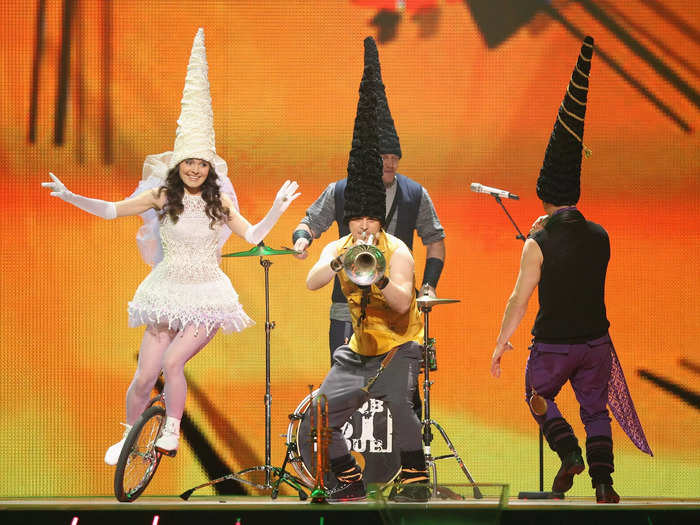
The first Eurovision competition took place in Switzerland in 1956 and was created by an alliance of public service media from different nations called the European Broadcasting Union. It was inspired by a similar Italian-only singing competition — the Festival di Sanremo.
The only televised live music event that even comes close in size and scope is the Super Bowl Halftime Show, which garnered 118.7 million viewers when Rihanna took to the stage earlier this year.
While awards shows like the Academy Awards have struggled to win back pre-pandemic ratings, Eurovision has had no such issue. The contest has consistently attracted a viewership of around 180 million since 2017.
And guess what: This is the first year ever non-participating countries, such as the US, can vote in the contest.
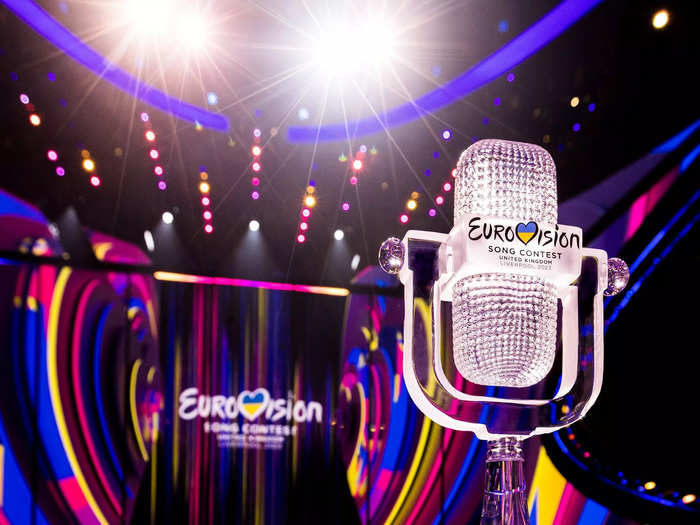
In a bid to make this year's competition truly a global affair, viewers living outside of participating countries can vote in the Eurovision Song Contest for the first time ever.
Explaining the decision behind the rule change, Martin Österdahl, the Eurovision Song Contest's executive supervisor, said in a statement in late 2022 that it "acknowledges the immense popularity of the show by giving more power to the audience of the world's largest live music event."
The votes given by non-participating countries will be added up and converted to points that carry the same weight as a participating country in both semi-finals and the grand final.
Those keen to tune in can do so on the event's official YouTube channel (if available in your region) and on Peacock on Saturday, May 13 from 3 p.m. ET/12 p.m. PT.
While only seven counties took part in the first contest in 1956, this year there are 37 participating countries hoping to win.
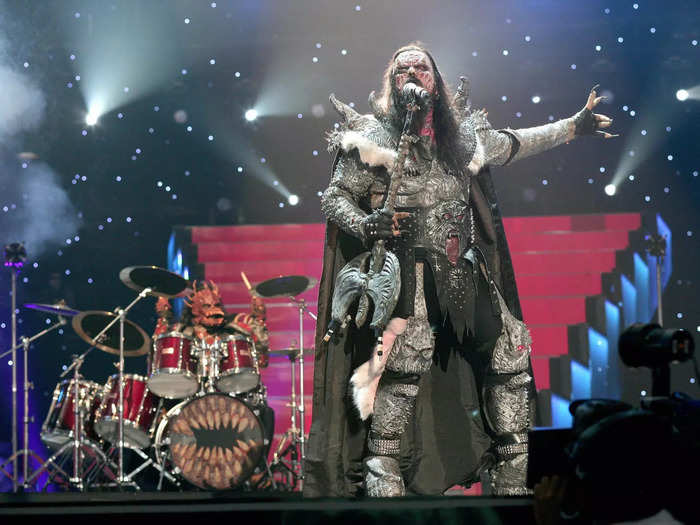
Originally, only the Netherlands, Switzerland, Belgium, Germany, France, Luxembourg, and Italy were the only countries to participate in the first-ever Eurovision.
Since then, more and more countries have been seduced by the camaraderie of Eurovision and competition has ballooned to accommodate up to 43 participating countries. This year there are 37, with Bulgaria, Montenegro, and North Macedonia among those that have chosen to sit it out this time around.
As the name would suggest, the majority of participating countries are indeed in Europe, but some neighboring territories like Israel and Azerbaijan also compete, as does Australia, which is part of the UK commonwealth.
If you've seen "Eurovision Song Contest: The Story of Fire Saga," you'll be familiar with some of the unique traditions and quirks of the competition.
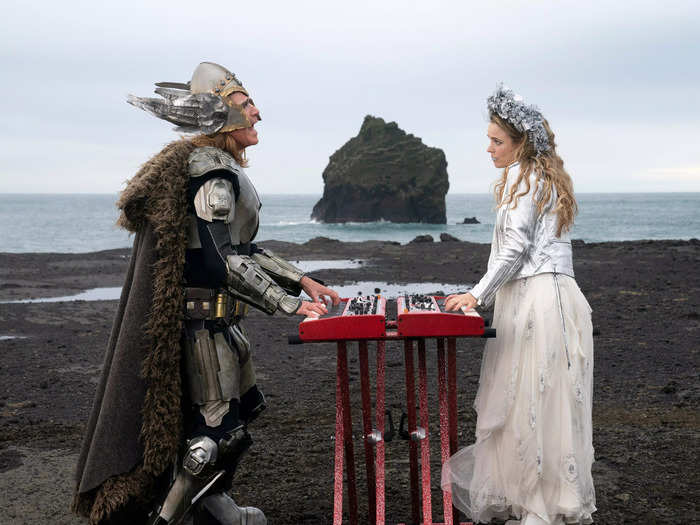
Many unassuming Americans were introduced to the cult of Eurovision through the parody movie "Eurovision Song Contest: The Story of Fire Saga."
Penned by Will Ferrell and "Saturday Night Live" writer Andrew Steele, and featuring a slew of cameos from previous winners, it tells the story of Lars Erickssong (Ferrell) and Sigrit Ericksdottir (McAdams), a Eurovision-obsessed double act from a small town in Iceland who, against all odds, end up making it not only into the competition but into the final.
In reality, Iceland has never won. The country's 2020 entry — the wonderfully weird "Think About Things" by Dadi og Gagnamagnid — was an early favorite to win in 2020 after going viral as a dance challenge on TikTok. But the competition was canceled that year due to the pandemic.
The film also highlights a question all contestants come up against: should they sing in their own language or English?
While in its early days, participating acts were required to perform in their native tongue, after this rule was abandoned there was a shift toward English-language lyrics that, the theory goes, resonate better with voters and the jury.
Five countries — France, Germany, Italy, Spain, and the United Kingdom — always have a guaranteed spot in the Eurovision final.
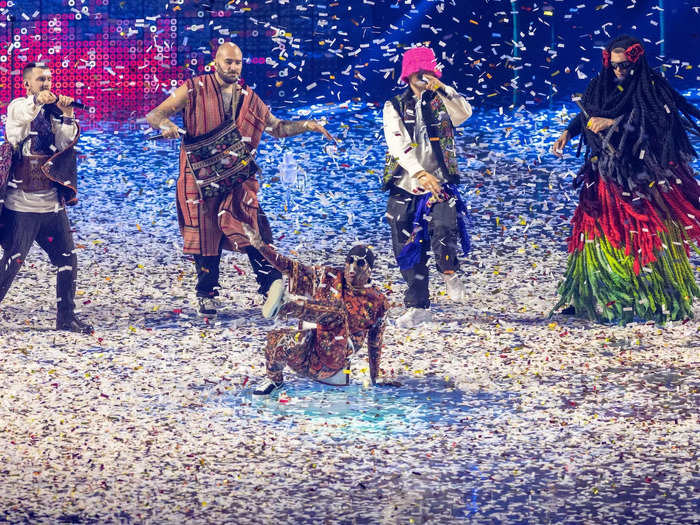
Since the 1950s, the competition has grown from a one-day contest to a "week-long, boundary-pushing, technologically innovative, multi-show spectacular" as the organizers put it.
Every year, each participating country chooses a song and performers to represent them through a televised national selection show, an internal process, or any other method they decide. Songs are required to be three minutes max and no more than six performers can appear on stage.
Then, across one week the chosen artists represent their country at one of two semifinals that precede the grand final.
The country that is hosting the competition that year is excluded from having to go through the semifinal competitions, along with a special set of countries called the "Big Five," as those countries are the biggest financial contributors to Eurovision. These countries are France, Germany, Italy, Spain, and the United Kingdom.
The voting system is a bit more complicated than your average singing competition.
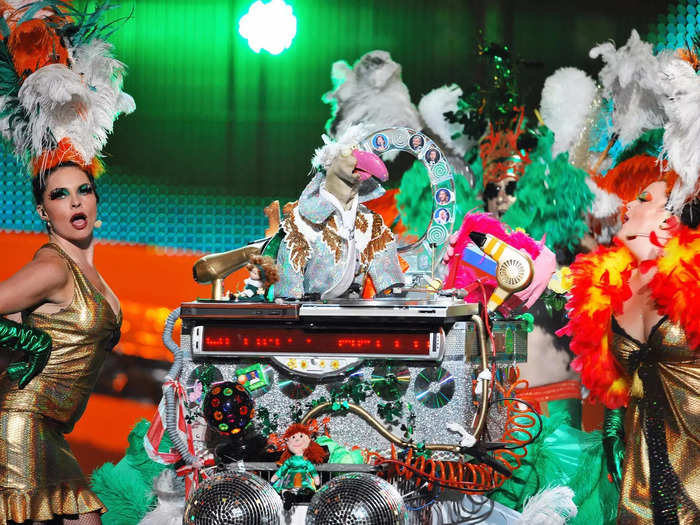
After each country performs, viewers and a jury of five music industry professionals from each country award points based on the performance, with 12 being the highest score possible. The voting is weighted 50:50, so both the jury and public votes are considered in the final score.
Out of fairness, viewers cannot award points to their own country's entry, although there is no stopping you if you're not in your country at the time of the competition.
In the end, the country with the highest score wins the trophy, gets to perform once more to close the event, and their country is awarded the honor (or financial burden, depending on how you see it) of hosting the next competition.
The voting system has been criticized in the past, with fans suggesting that bloc voting — the trend of countries giving maximum points to countries they're neighboring or friendly with — gives an unfair advantage to some nations. Greece and Cyprus, for example, are notorious for giving each other the maximum of 12 points.
To date, Ireland is the biggest champion of the contest with seven wins under their belt. Between 1992 and 1994, they won three times in a row — a feat that no other country has accomplished.
For many, Eurovision is synonymous with camp so it's no surprise that it has had a long-held and passionate fanbase in the LGBTQ community.
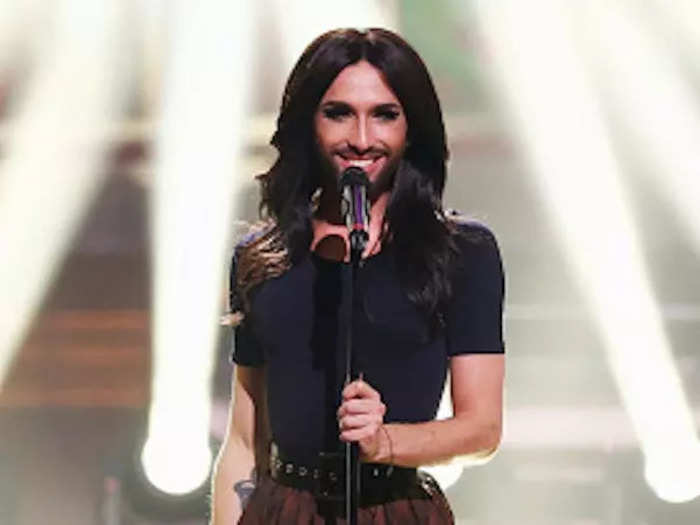
The competition is beloved by the community's values of tolerance, diversity, and spectacle for the sake of spectacle.
In turn, over the years the contest has leaned more into celebrating its LGBTQ performers and audience members. The first openly gay contestant, Iceland's Paul Oscar, appeared on the Eurovision stage in 1997 and since then representation has continued to grow, with the likes of Israel's trans performer Dana International and Austria's drag queen Conchita Wurst winning the competition in 1998 and 2014 respectively. Wurst's decision to appear in full drag and a beard caused a Russian MP to dub her win "the end of Europe."
If you're coming into it in the finals — here are the artists you should keep an eye on.
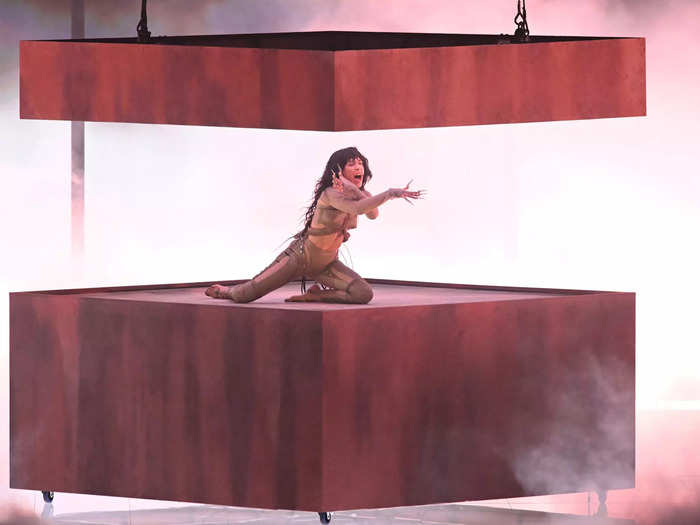
Loreen, representing Sweden, is one of the favorites to win this year's contest with her new song "Tattoo." The singer is already a huge star in Europe and the "Dune"-inspired visuals for her entry have become this year's first Eurovision meme.
Loreen's win could make her the second performer to win the competition twice, after winning in 2012 with her song "Euphoria," which topped the charts in numerous European countries.
Finland's candidate Käärijä appears to be another favorite since his song "Cha Cha Cha" had one of the highest audience votes in the first semifinal.
Norwegian star Alessandra, with her song "Queen of Kings," Spain's candidate Blanca Paloma, singing "EAEA," and La Zarra, who is representing France with the song "Évidemment" are three other frontrunners with a likely chance of winning the competition.
Celine Dion, ABBA, and Olivia Newton-John are some of the few Eurovision stars to ascend to global success.
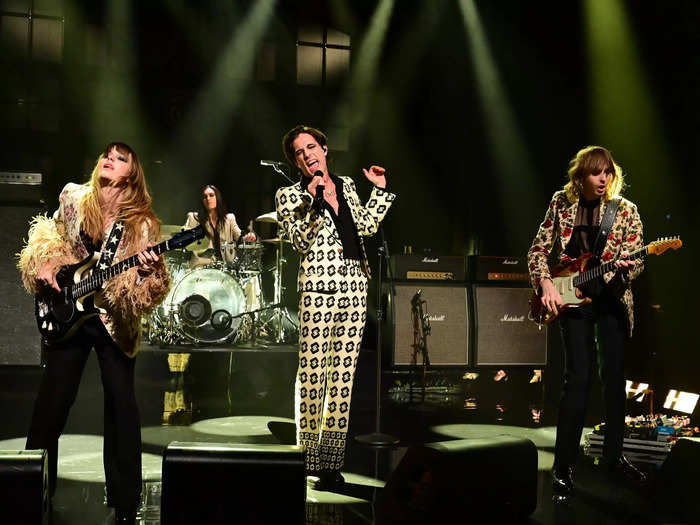
Not every Eurovision contestant or winner goes on to be an international star.
However, several well-known artists have competed in the contest, such as UK entry Lulu, who won Eurovision in 1969 after having a hit song with "To Sir With Love;" Olivia Newton-John, also a UK entry, faced off against Swedish winners in ABBA in 1974; Celine Dion, who helped Switzerland win in 1988; and Katrina and the Waves, widely known for the 1985 hit "Walking on Sunshine," whose UK entry won in 1997.
More recently, the rock band Måneskin, who won took home the trophy for Italy in 2021, have managed to make a bonafide career off the back of their success in the contest, going on to become Grammy nominees and land slots on "The Tonight Show Starring Jimmy Fallon" earlier this year and "Saturday Night Live" in 2022.
Others, meanwhile have enjoyed a different kind of fame, having been immortalized as Eurovision deities that will forever be associated with the competition. There are few that wouldn't recognize orc-cosplaying Lordi who won for Finland in 2006, or Israeli singer Netta, whose trademark look stole the show in "The Story of Fire Saga."
While Eurovision was constructed to be apolitical, the contest has struggled to keep politics and conflict out of the competition.
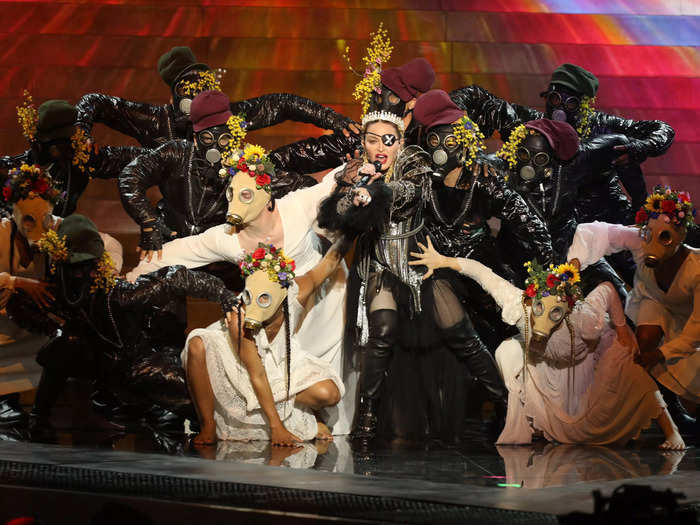
Since 2000, Eurovision has banned political messages in songs. That led to Georgia's withdrawal from the competition in 2009 and Belarus' disqualification in 2021. Over the years, protesters have used the platform to promote other social issues.
When Israel hosted the competition in 2019, pro-Palestinian activists called on artists to boycott the contest over Israel's policies towards Palestinians in the occupied West Bank and Gaza.
Madonna, who was performing as a guest during the broadcast that year, rejected the boycott calls saying in a statement that she will "never stop playing music to suit someone's political agenda." She later stirred controversy by having her dancers display both Israel and Palestinian flags together.
Last year, Russia — which joined in 1994 and won in 2008 — was banned from the competition following the country's invasion of Ukraine. The executive board of the European Broadcasting Union said at the time that the country's inclusion would "bring the competition into disrepute" and thus suspended Russian broadcasters from the EBU.
This year's contest attempts to celebrate unity in the face of divisions across Europe.
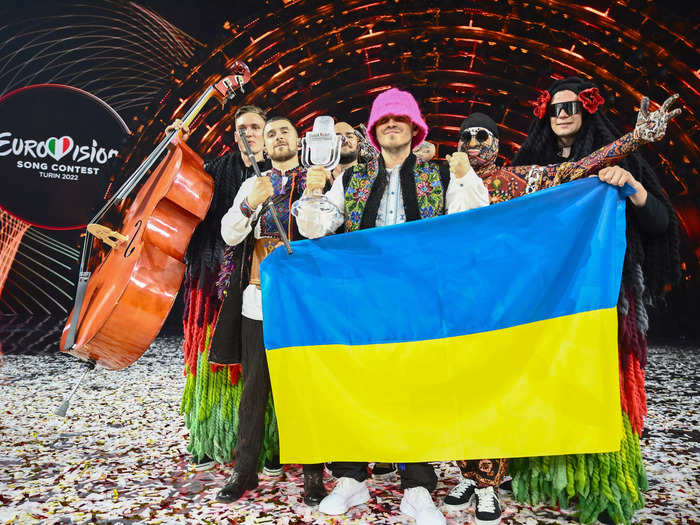
Traditionally, the home of the previous year's winner hosts the event, but the policy had to be amended this year after Ukraine won in a landslide vote in 2022 with folk-rap group Kalush Orchestra's "Stefania."
While the besieged country was initially hopeful that they'd be able to host (the 2022 competition took place only three months into the war), Ukrainian broadcaster UA:PBC announced in July 2022 that for safety and security reasons, it was not going to be possible.
The UK, who came very close to winning for the first time in a quarter of a century with Sam Ryder's earworm power ballad "SPACE MAN," stepped in to take on the responsibility, promising to make this year's ceremony a celebration of Ukrainian spirit and culture.
Liverpool, as a result, has been honoring the would-be hosts in numerous ways in the lead-up to the final. From displaying flags and artwork from Ukraine around the city and choosing a Ukrainian singer as co-host to allocating thousands of subsidized tickets to Ukrainians who've resettled in the UK, the message that the two countries are "UnitedByMusic" is clear.
Given that Eurovision began to promote cooperation between European territories in the aftermath of World War II, it's rather fitting that now, almost seven decades later, this continues to be at the heart of the competition.
Popular Right Now
Popular Keywords
Advertisement